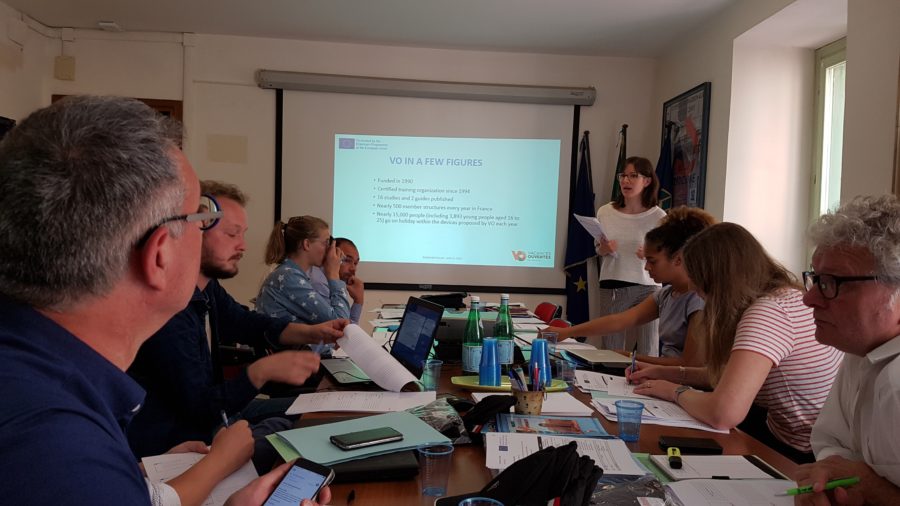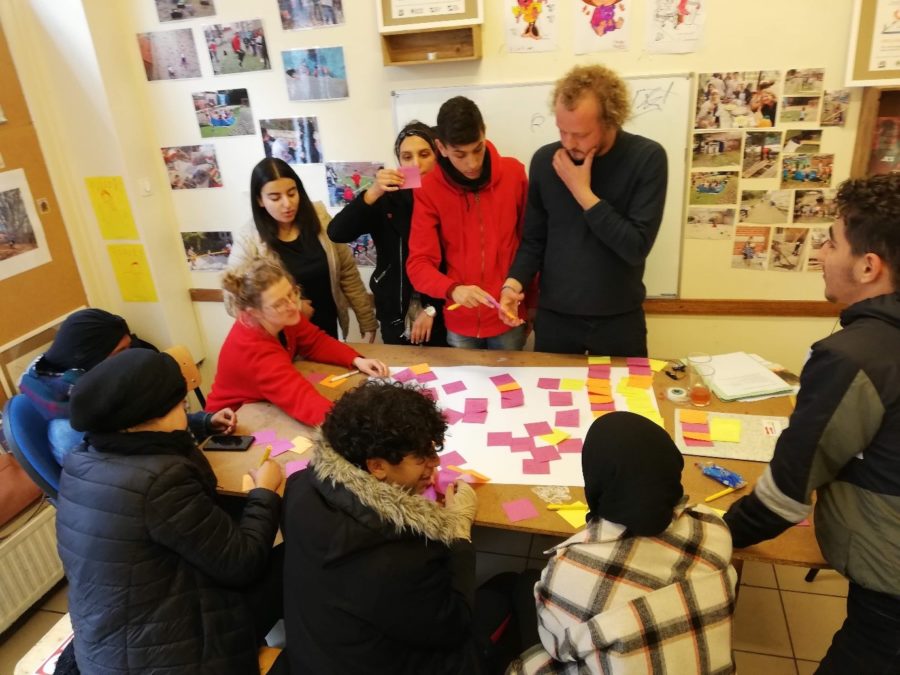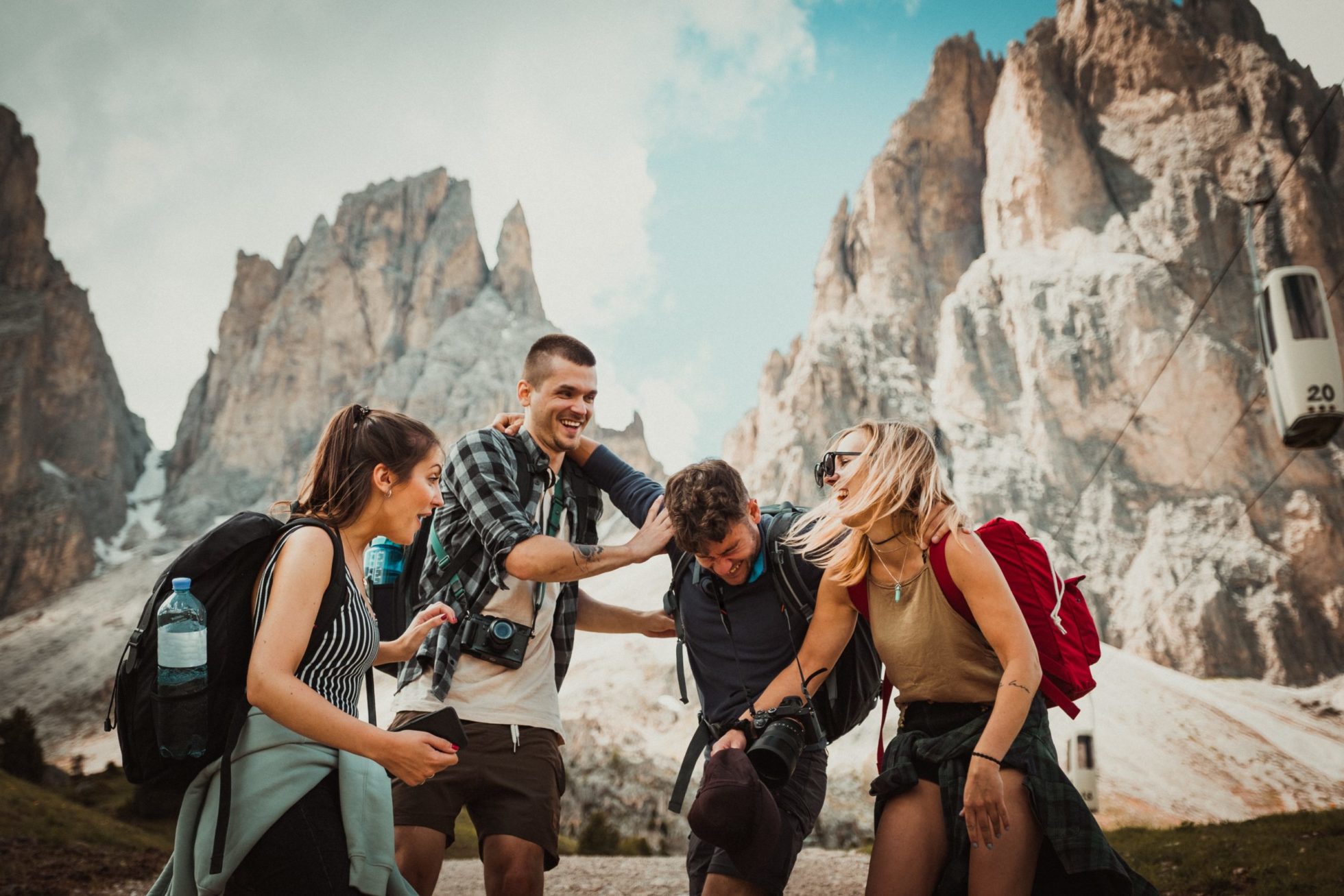ISTO, together with several partners, has written a guide to help other organisations start their own version of the French programme “Sac Ados” (created by ISTO member Vacances Ouvertes). The goal: help young people take their first autonomous trip.
Youth tourism and more specifically the idea of the Backpacker Europe (BPE) project was one of the actions of ISTO Europe’s strategic plan for 2015-2020. The objective was to help young people, from age 16 to 25, to take their first autonomous trip without family or professional support.
The Erasmus + BPE project focused on young people who are struggling financially and who have not yet travelled autonomously. Those are the ones in need of a methodological support and a small budget to remove a part of the financial barrier to realize their journey. Two things that organisations can provide.
By helping young people with planning and realizing their journey in Europe, organisations help them develop new skills. Skills they can also use in their everyday life. For example, autonomy and mobility. In addition, travelling widens your horizon/perspective. With this approach they are working on a qualitative way with young people within a framework of non-formal learning.
The partners on the project
With ISTO as leading partner and Vacances Ouvertes as expert partner, a mix of interested partners, (and ISTO members) joined the project to look at the experience from different angles. Partners brought in expertise in infrastructure, social engagement, promotional angle, work on youth tourism, etc...

Among the partners, we have Belgian organisations Volkstoerisme and Kaleo (formerly CBTJ) as social tourism organisations with youth experience, BundesForum as a youth tourism organisation with expertise in promotional and quality criteria on youth tourism and Endas with expertise in youth, sports and cultural camps.
We also used the very helpful experience of "vakantieparticipatie" of Visit Flanders who was an important associated partner.
Partners evaluated implementation on a European scale of the existing concept "Sac Ados" and determined how it could help contribute to European citizenship, with respect of the values of inclusion.
The process
With only 4 transnational meetings we tried to exchange a maximum of knowledge and experience. The goal was to explore the possibilities to adapt the concept in the partners’ countries, to create an ideal task plan for youth organisations, governments, private potential partners that want to start in their country BPE.
During the meetings, essential conditions were explained and new criteria or methodologies were explored. The vision of the Youth Advisory Board was obtained by a procedure of questionnaires and in depth interview with focus groups.

A screening in each country/region taught us that the social landscape is very different from a country to another. The initial idea of "one tourism partner and one social partner" to start BPE was abandoned. Instead, a plan of essential tasks that must be filled in by organisations was created. An interested BPE starter organisation can therefore search at its own level the necessary assistance and expertise to fulfil the essential BPE tasks (according to the plan) to start their BPE own program.
With the knowledge and different points of view “on the field” European criteria were fine tuned.
The annual meetings of ISTO Europe in 2018 in Lyon and 2019 in Paris were used to discuss the project with public policymakers, stakeholders and experts of the social tourism work field (about 70 people).
The last meeting in Berlin was used to reflect on future actions after finishing the project. Partners engaged to continue the efforts after the end of the project.
Political actions at the European level are planned and all the material is ready. ISTO and its partners are only waiting for the new EU commissioners to have settled.
The result
All the meetings resulted in the creation of the guide “Start to Backpacker” that is available to everyone by clicking here.
This guide is considered a basis to help organisations in other European countries start their own version of “Sac Ados”.
With this project we could prove that Backpacker Europe is an initiative that answers a demand of the target group but also gives opportunities to Europe to help young people without travel experience learn the skills of traveling in an attractive way. Such a programme helps increasing European citizenship and could be an new idea for the EU program Discover Europe. More young people could benefit from a non-formal learning program, develop new skills and stimulates better integration in our society.

